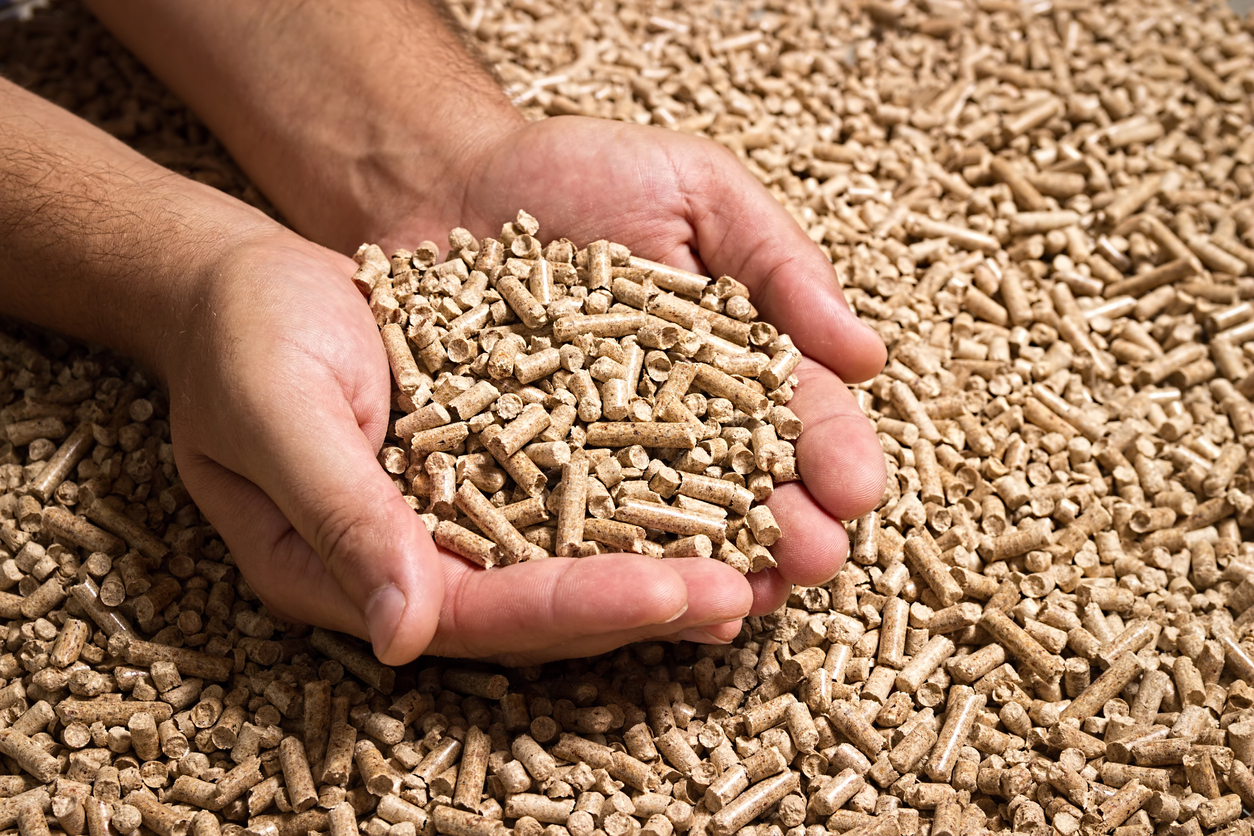Boosting Agricultural Productivity: Pelletizing in Nigeria with Wigmore Trading
Boosting Agricultural Productivity: Pelletizing in Nigeria with Wigmore Trading
Are you ready to revolutionize the way agriculture is done in Nigeria? Look no further than pelletizing with Wigmore Trading! In this blog post, we’ll explore how this innovative technique can boost agricultural productivity and help farmers thrive in today’s competitive market. Join us as we dive into the world of pelletizing and discover how it can transform the way crops are grown and harvested in Nigeria. Let’s get started!
Introduction to Agricultural Productivity in Nigeria
Introduction to Agricultural Productivity in Nigeria
Nigeria is a country with a vibrant and diverse agricultural sector, accounting for approximately 22% of the nation’s GDP and providing employment for over 60% of the population. However, despite its vast potential, the agricultural productivity in Nigeria has been facing several challenges such as inadequate infrastructure, limited access to modern technologies and inputs, and low efficiency in production processes.
One major factor contributing to these challenges is the traditional farming practices that are still prevalent in many rural areas. These methods often involve manual labor, outdated tools and techniques, and lack of knowledge about modern farming practices. As a result, farmers struggle to meet market demand and achieve maximum yields from their crops.
In recent years, there has been a growing focus on increasing agricultural productivity in Nigeria through modernizing farming practices. One approach that has gained significant attention is pelletizing – converting raw materials into compact pellets using specialized machinery.
Pelletizing involves compressing agricultural waste such as rice husks or sawdust into dense pellets that can be used as fuel or animal feed. This process not only helps turn waste into valuable resources but also improves soil health by reducing nutrient loss during transportation.
Wigmore Trading Limited, a leading agricultural equipment supplier in Nigeria, has been at the forefront of promoting pelletizing technology among Nigerian farmers. The company offers high-quality pellet machines that are specifically designed for small-scale farmers who want to increase their productivity without investing in expensive equipment.
The benefits of pelletizing extend beyond just waste management and soil improvement. Pellets have higher energy density compared to loose materials which makes them easier to transport and store. This means farmers can save time and money by bulk-buying their feed requirements rather than constantly making trips to purchase small quantities.
Moreover, pellets have consistent quality which ensures uniformity in animal nutrition resulting in better weight gain and overall health of livestock. The convenience offered by this method allows farmers to focus on other crucial aspects of their farming operations, leading to increased efficiency and productivity.
Pelletizing technology has the potential to significantly boost agricultural productivity in Nigeria. By addressing issues such as waste management, soil health, and feed quality, it can help farmers overcome the challenges they face and increase their yields. In the following sections, we will explore in more detail how pelletizing works and how Wigmore Trading is helping farmers adopt this technology for improved agricultural productivity in Nigeria.
What is Pelletizing?
Pelletizing is a process of compressing or molding a material into small, round pellets. In the agricultural industry, pelletizing is commonly used to convert raw materials such as feed grains and agro residues into more manageable forms for animal feed and fertilizers. This technique has been gaining popularity in Nigeria due to its numerous benefits in boosting agricultural productivity.
The process of pelletizing involves pressing the raw materials through a die with holes of specific sizes, which results in compacted pellets. These pellets have a higher density compared to their original form, making them easier to transport and store. This is especially beneficial for farmers in remote areas who face challenges in transporting bulky raw materials over long distances.
Another advantage of pelletizing is that it improves the nutritional value of animal feed. During the compression process, heat and pressure break down complex compounds present in the raw materials, making them more digestible for animals. Pellets also have a consistent composition, ensuring that each animal receives an equal amount of nutrients from their feed.
In addition to its use in animal feed production, pelletizing has also proven to be effective in producing high-quality organic fertilizers. Agro residues such as rice husks and sawdust can be compressed into pellets, which not only makes them easier to handle but also enhances their nutrient content. Furthermore, these organic fertilizers release nutrients slowly over time, providing plants with a continuous supply of essential elements for growth.
One major factor contributing to the rise of pelletizing in Nigeria is the country’s growing poultry industry. With over 180 million chickens produced annually, there is a huge demand for cost-effective animal feeds. By utilizing locally available raw materials and converting them into pellets with higher nutritional value and better storage properties, farmers can reduce expenses while improving the quality of their products.
Wigmore Trading Company recognizes the potential benefits that pelletizing offers for Nigerian farmers and has been at the forefront of promoting this technique through their line of pellet mills. These machines are specifically designed for small and medium-scale farmers, making it more accessible and affordable to adopt this technology.
Pelletizing is a valuable tool in boosting agricultural productivity in Nigeria. By converting raw materials into compacted pellets, farmers can improve their feed quality, reduce transportation costs, and produce high-quality organic fertilizers. With the support of companies like Wigmore Trading, the adoption of pelletizing technology is expected to continue growing in the country, contributing to the overall development of the agricultural sector.
The Benefits of Pelletizing in Agriculture
Pelletizing is a process that has gained much attention in the field of agriculture, particularly in Nigeria. It involves compressing and molding various agricultural materials into dense pellets, which are then used as feed for livestock or as fertilizers for crops. This technique has proven to have numerous benefits for farmers and the overall agricultural industry.
One of the main advantages of pelletizing in agriculture is its ability to improve the efficiency and productivity of farming operations. By converting loose agricultural materials such as crop residues, animal manure, and other organic waste into compact pellets, farmers can reduce storage space needed and make transportation easier. This helps them save time, energy, and costs on handling these materials.
Moreover, pelletizing can significantly increase the nutrient content of feed or fertilizer. The compression process breaks down fibrous materials and makes nutrients more accessible to animals or plants. As a result, animals fed with pellets tend to have better digestion rates leading to improved growth and health while crops grow faster with increased yields.
Another benefit that comes with pelletizing is its contribution towards environmental sustainability. Pellets are made from natural sources that would otherwise go unused or be burned causing air pollution. By using these materials as feed or fertilizers instead, farmers are reducing their carbon footprint while promoting responsible waste management practices.
In addition to this, pelletizing also offers a solution to challenges faced by smallholder farmers who often struggle with access to quality feed for their livestock due to high costs or limited availability during dry seasons. With pelletizing technology now available in Nigeria through companies like Wigmore Trading, small-scale farmers can now easily produce their own nutritious animal feeds at lower costs using locally available raw materials.
Furthermore, using pelleted fertilizers also has long-term benefits for soil health compared to traditional chemical fertilizers which can deplete soil nutrients over time. Pelletized fertilizers release nutrients slowly over an extended period ensuring continuous nourishment for crops without harming the soil.
The benefits of pelletizing in agriculture cannot be overlooked. This innovative technique not only improves productivity and efficiency but also promotes sustainability and provides solutions to challenges faced by farmers. As Nigeria strives towards boosting its agricultural sector, embracing pelletizing technology will undoubtedly play a significant role in achieving this goal.
Wigmore Trading: A Leader in Pelletizing Technology
Wigmore Trading has been a pioneer and leader in the field of pelletizing technology, not just in Nigeria but globally. With over 30 years of experience, Wigmore Trading has continuously pushed the boundaries of agricultural productivity by providing innovative and efficient solutions through their pelletizing technology.
At Wigmore Trading, we understand that traditional farming methods can be time-consuming, labor-intensive, and often result in low crop yields. This is where our pelletizing technology comes in – it offers a modern and sustainable approach to agricultural production. Pelletizing involves compressing various types of raw materials such as sawdust, grasses, crop residues, and animal waste into compact pellets that can be used as feed for livestock or fuel for cooking and heating.
One of the biggest advantages of using pellets is their improved nutrient concentration. Through our advanced pelletizing technology, we are able to compress large amounts of nutrients into small pellets, making them more efficient to transport and store. This also ensures that animals are receiving all the necessary nutrients for optimal growth and health.
Moreover, our pelletizing technology reduces waste by utilizing biomass residues from agriculture and forestry industries. By doing so, we promote sustainable practices while also minimizing environmental pollution caused by burning these materials.
Our commitment to innovation has led us to develop specialized machines tailored specifically for Nigerian farmers. These machines have been designed with local conditions in mind to ensure maximum efficiency and productivity. In addition to providing high-quality machines, Wigmore Trading also offers training programs on how to properly use our equipment for optimal results.
Furthermore, we understand that every farm has different needs and requirements which is why we offer customizable solutions based on specific crop types or production goals. Our team works closely with farmers to assess their needs and recommend the most suitable equipment for their operations.
Over the years, Wigmore Trading has built a reputation as a reliable partner among Nigerian farmers due to our consistent delivery of high-quality products backed by excellent after-sales service. We are committed to not only providing top-notch pelletizing technology but also offering ongoing support and maintenance to ensure our clients’ success in the long run.
As a leader in pelletizing technology, we are constantly investing in research and development to improve our machines and processes, leading to higher efficiency and productivity for Nigerian farmers. At Wigmore Trading, we believe that through our innovative pelletizing technology, we can boost agricultural productivity in Nigeria while promoting sustainable practices for a better future.
How Does Wigmore Trading Help Boost Agricultural Productivity in Nigeria?
Wigmore Trading is a leading agricultural equipment and machinery supplier in Nigeria, dedicated to helping farmers increase their productivity and yield. With years of experience in the industry, they understand the challenges faced by Nigerian farmers and have developed innovative solutions to address them.
One of the ways Wigmore Trading helps boost agricultural productivity in Nigeria is through pelletizing. Pelletizing is a process of compressing raw materials into small, dense pellets that are easier to transport, handle, and store. These pellets can be made from various agricultural waste such as corn stalks, rice husks, sawdust, etc., which are abundant in Nigeria.
The first way Wigmore Trading supports pelletizing is by providing high-quality pellet machines. They offer a range of efficient and durable pelletizing machines suitable for different types of raw materials. These machines are designed with advanced technology and undergo strict quality control measures to ensure optimal performance.
In addition to supplying pellet machines, Wigmore Trading also provides training and technical support for farmers on how to use these machines effectively. This includes proper operation techniques as well as maintenance tips to keep the machines running smoothly. By equipping farmers with the necessary knowledge and skills, Wigmore Trading helps them maximize their use of pelletizing technology.
Moreover, Wigmore Trading sources its raw materials from local Nigerian farmers who would otherwise struggle to find buyers or dispose of their waste properly. This not only helps reduce environmental pollution but also provides an additional source of income for these farmers.
Another significant benefit of using pelleting technology is that it improves the quality of feed for livestock such as poultry, cattle, sheep, etc. The compressed pellets have a higher nutrient density compared to bulkier raw materials; hence animals can get more nutrition from smaller quantities of feed. As a result, there is less wastage and better utilization of resources.
Furthermore, pelleting also increases the shelf life of feed since it reduces moisture content and eliminates bacteria growth. This is particularly advantageous for farmers in Nigeria, where the hot and humid climate can spoil feed quickly.
Wigmore Trading plays a vital role in boosting agricultural productivity in Nigeria through the promotion of pelletizing technology. By offering high-quality machines, training and technical support, sourcing local raw materials, and improving feed quality, they are helping Nigerian farmers increase their efficiency and profitability.
Success Stories of Farmers Using Wigmore Trading’s Pelletizing Technology
Wigmore Trading’s pelletizing technology has been making waves in the Nigerian agricultural industry, with numerous success stories of farmers who have experienced a significant boost in their productivity and profitability. In this section, we will explore some of these inspiring success stories from real-life farmers who have adopted Wigmore Trading’s pelletizing technology.
One such farmer is Mr. Adeoye, a maize farmer from Oyo state. Before using Wigmore Trading’s pelletizing technology, Mr. Adeoye struggled with inconsistent crop yields due to poor soil quality and inadequate nutrients for his crops. However, after attending a training session on pelletizing techniques organized by Wigmore Trading, he decided to give it a try on his farm.
To his surprise, the results were astounding. With the help of Wigmore Trading’s high-quality fertilizer pellets, Mr. Adeoye saw a 30% increase in his maize yield within just one season. He credits this success to the improved soil fertility and balanced nutrient supply provided by the pellets.
Another remarkable story comes from Mrs. Adewale, a vegetable farmer from Kano state. She had been struggling to control pests and diseases on her farm while also facing challenges with storing her produce due to spoilage during transportation to market centers.
After learning about Wigmore Trading’s pest-repelling pellets and storage solutions at an agriculture fair, Mrs. Adewale immediately purchased them for her farm operations. The results were beyond her expectations – she was able to keep pests at bay without harmful chemicals while also preserving her vegetables for longer periods without spoilage.
In addition to boosting productivity and addressing pest issues, Wigmore Trading’s pelletizing technology has also helped many small-scale farmers increase their income through cost savings on inputs and increased market demand for their high-quality produce.
For instance, Mr.Oladele is a cassava farmer from Osun state who used to spend a considerable amount of money on chemical fertilizers and pesticides. However, after switching to Wigmore Trading’s organic fertilizer pellets and bio-pest control products, he was able to reduce his input costs by 20%. Moreover, the superior quality of his produce due to the use of organic inputs has attracted higher prices from buyers, resulting in a 15% increase in his income.
These are just a few examples of how Wigmore Trading’s pelletizing technology has transformed the lives and livelihoods of farmers across Nigeria. From increased yields and better quality produce to cost savings and improved profits, the success stories speak for themselves.
By providing innovative solutions for soil fertility management, pest control, and crop storage, Wigmore Trading is not only boosting agricultural productivity but also contributing to sustainable farming practices in Nigeria. As more farmers continue to embrace this technology, we can expect even more inspiring success stories in the future.
Future Prospects and Impact on Nigerian Agriculture
Future Prospects and Impact on Nigerian Agriculture
The future prospects of pelletizing in Nigeria are extremely promising, as this innovative technology has the potential to significantly boost agricultural productivity and transform the country’s agriculture sector. With a rapidly growing population and increasing demand for food, it is essential to adopt new and efficient methods of farming in order to meet these demands and ensure food security for the nation.
One of the major impacts of pelletizing in Nigerian agriculture is its ability to increase crop yield. By converting raw agricultural waste into high-quality pellets, farmers can effectively utilize all parts of their crops, reducing wastage and maximizing output. This not only leads to higher yields but also increases profitability for farmers, allowing them to reinvest in their farms and further improve productivity.
Additionally, pelletizing also has a positive impact on soil health. The use of organic fertilizer from agricultural waste pellets helps improve soil structure, texture, and nutrient content. This results in healthier plants with stronger root systems that can better withstand pests and diseases. Moreover, the use of organic fertilizers improves overall soil fertility over time, leading to sustainable farming practices that benefit both present and future generations.
Another significant impact of pelletizing on Nigerian agriculture is its contribution towards environmental conservation. The burning or improper disposal of agricultural waste contributes significantly to air pollution by releasing harmful greenhouse gases into the atmosphere. However, through pelletization, this waste is converted into valuable resources instead of being discarded or burnt. This not only reduces pollution levels but also mitigates climate change effects by reducing carbon emissions.
Furthermore, with increasing global demand for sustainable products, there is a growing market for eco-friendly fertilizers made from organic materials such as agricultural waste pellets. By adopting pelletization technology in their farming practices, Nigerian farmers have an opportunity to tap into this market and potentially increase their profits while contributing towards more sustainable agriculture practices.
It is evident that the adoption of pelletizing technology has enormous potential to revolutionize Nigerian agriculture. From increasing crop yield and improving soil health to promoting sustainable farming practices and tapping into new markets, the impact of pelletizing extends far beyond just boosting productivity. It is a step towards a more efficient, profitable, and environmentally friendly agricultural sector in Nigeria.
Conclusion: Why Pelletizing with Wigmore Trading is the Way to Go for Nigerian Farmers
Conclusion: Why Pelletizing with Wigmore Trading is the Way to Go for Nigerian Farmers
Pelletizing has proven to be an effective method for boosting agricultural productivity in Nigeria. And when it comes to pelletizing, there is no better partner for Nigerian farmers than Wigmore Trading.
One of the main reasons why pelletizing with Wigmore Trading is the way to go for Nigerian farmers is due to their extensive knowledge and expertise in the field of agriculture. With over 20 years of experience in providing innovative solutions for the agricultural industry, Wigmore Trading has established itself as a leader in the sector. Their team consists of highly skilled professionals who are well-versed in the latest techniques and technologies related to pelletizing. This ensures that they can provide farmers with top-notch services and products that meet their specific needs and requirements.
Additionally, Wigmore Trading offers a wide range of high-quality equipment, machinery, and tools required for successful pellet production. These include pellet mills, hammer mills, mixers, dryers, coolers, extruders, and more. All of these products are sourced from reputable manufacturers around the world and are known for their durability and efficiency.
Furthermore, partnering with Wigmore Trading also means access to ongoing technical support and assistance throughout the entire process. From setting up equipment to troubleshooting any issues that may arise during production, their team is always on hand to provide guidance and assistance.
Moreover, by choosing Wigmore Trading as your pelletizing partner, you can also benefit from cost savings. As mentioned earlier in this article, one of the major challenges faced by Nigerian farmers is post-harvest losses due to poor storage methods. By investing in quality pellets produced through efficient methods provided by Wigmore Trading’s equipment – farmers can significantly reduce these losses.
Last but not least, partnering with Wigmore Trading also means contributing towards sustainable agriculture practices. Pelletization helps minimize waste by utilizing crop residues and other agricultural by-products that would otherwise be discarded. This not only benefits the environment but also helps farmers save on costs for fertilizers and other inputs.
Wigmore Trading is committed to supporting Nigerian farmers in improving their productivity through pelletizing. With their expertise, quality products, ongoing support, cost savings, and sustainable practices – it is clear that partnering with them is the way to go for Nigerian farmers looking to boost their agricultural production.








Comments are closed.